China urged to tap Canada's talent
Updated: 2014-12-26 23:42
By Wang Ru in Beijing(China Daily Canada)
|
||||||||
 |
For Daniel Cheng, managing director of Canada China Business Council's (CCBC) office in China, there is an unexplored gold mine between the two countries.
"Canada has a strong tradition of innovation and a vibrant R&D environment, which is recognized by the world but little-known in China," said Cheng.
In an interview in his office, located in Beijing's central business district, Cheng talked about the innovation power of Canada and expressed his willingness to help China's investors tap Canada's innovation power.
"Cinemas with IMAX screens are getting very popular in China, but how many Chinese know the fact that IMAX was created by a Canadian company?" Cheng asked.
"There are many famous Canadian innovation and products that haven't entered into the Chinese market but are well known in the world," said Cheng.
As an example, Cheng cited "the very reliable and efficient" small planes also known as the "Flying pickup truck". He said the planes are made by a Canadian aircraft manufacturer Viking Air Ltd and are highly suited for China's fast-growing civil aircraft market, particularly in rugged areas with few airports.
For Cheng, Canada is much like a shopper's paradise, continuously producing new inventions for the US and European markets.
"Canada's specialty on innovation concentrates on the early phase of R&D, including creating ideas and making prototypes, but not on commercialization and marketing," said Cheng. "It is a result of Canada's natural advantage being adjacent to the US market where it has developed industrialization and strong global branding power."
Before working for CCBC, Cheng managed his own medical technology company in Montreal, where some world-leading companies, like Bombardier, the transportation innovation and manufacture giant, are based.
"Canada has an ideal R&D environment, from its innovation-driven education system, to the government policy-making," said Cheng.
In Canada, the Scientific Research and Experimental Development Tax Incentive Program exempt about 4 billion Canadian dollars from taxes, out of the innovation investments from more than 18,000 domestic technology companies.
"In fact, most of Canada's innovations are born from medium and small companies that tend to sell their patents or shares, transferring technology to big companies," said Cheng.
In 1874, Thomas Edison bought the patent for the incandescent light bulb from two Canadian inventors, Henry Woodward and Mathew Evans, and then developed the invention, which eventually changed the world.
"It was a classic example, but now has become Canada's role in the division of global industry," said Cheng.
He pointed out that Chinese companies should work with Canadian companies to innovate for the Chinese market.
"China is the world factory and also becoming one of the largest consumer markets, but very few world-class brands and popular products are designed for Chinese consumers," said Cheng.
"There is a huge potential for Canadian R&D companies to target the Chinese market and innovate for China," Cheng added. "I also strongly recommend Chinese investors and companies explore the innovation resources in Canada."
Cheng believes that agricultural and clean energy technologies are now two hot fields for cooperation between the two countries.
wangru@chinadaily.com.cn
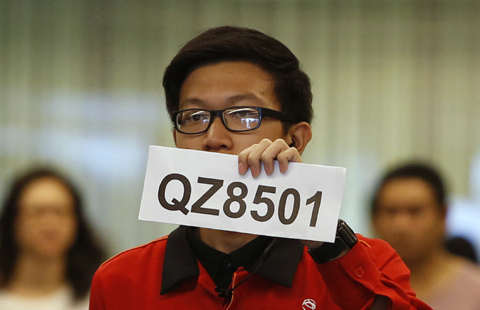
 Where did you go flight QZ8501
Where did you go flight QZ8501
 Cartoons capture 10 major China stories of 2014
Cartoons capture 10 major China stories of 2014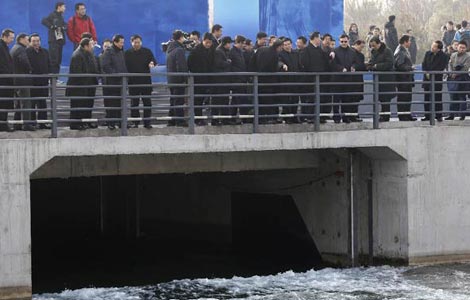
 Thirsty Beijing receives water from the south
Thirsty Beijing receives water from the south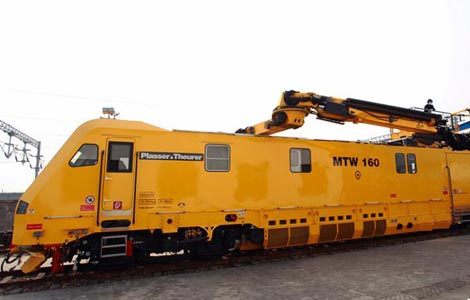
 China's first 'bullet train ambulance' unveiled
China's first 'bullet train ambulance' unveiled
 Students sit for artistic future
Students sit for artistic future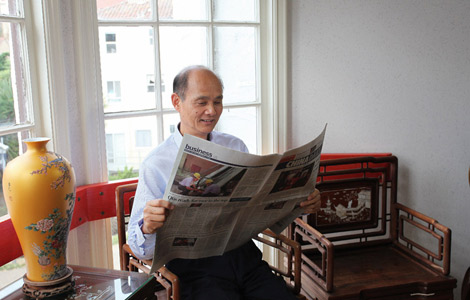
 A day with new consul general in San Francisco
A day with new consul general in San Francisco
 Chinese dancer joins Nutcracker
Chinese dancer joins Nutcracker
 Across America Over the Week (Dec 19 -Dec 25)
Across America Over the Week (Dec 19 -Dec 25)
Most Viewed
Editor's Picks

|

|
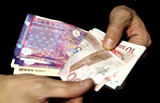
|

|

|

|
Today's Top News
Live Report: Flight from Indonesia to Singapore missing
AirAsia plane with 162 on board missing in Indonesia
Backgrounder: Major air accidents in recent years
DPRK Internet, 3G mobile network suffer 2nd outage
China's small schools go digital
Louis Vuitton belt brings down Chinese official
Xi gives full backing to HK system
Mega project brings water from south to Beijing
US Weekly

|

|







